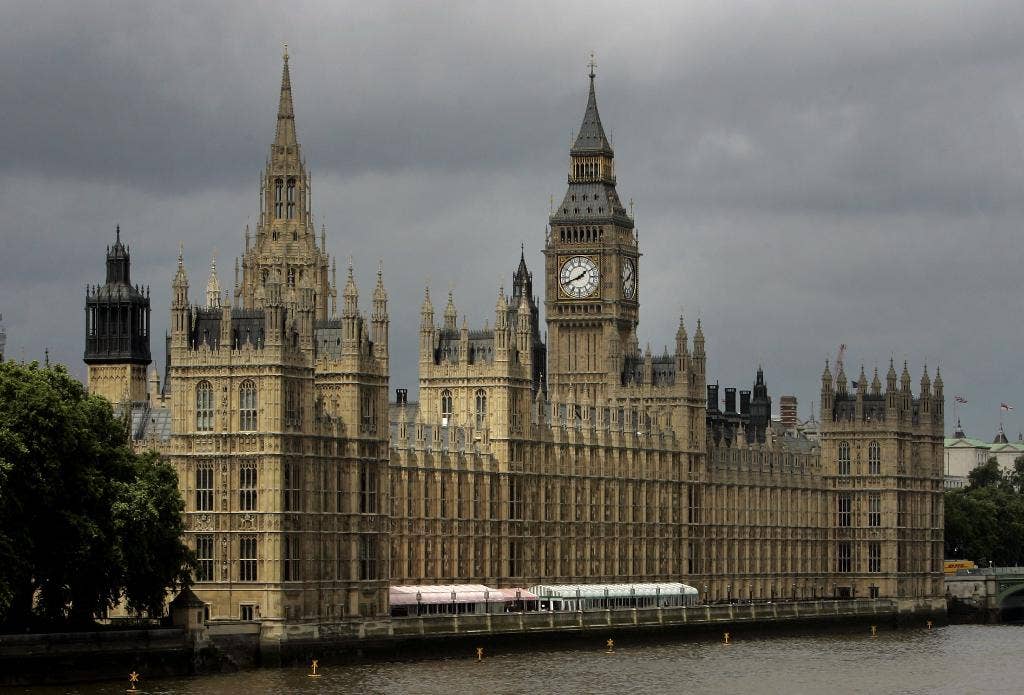A recent push to ban first-cousin marriage in the United Kingdom has sparked considerable debate within Parliament. Conservative MP Richard Holden advocated for the prohibition, citing health concerns associated with the practice. However, the ruling Labour Party, led by Prime Minister Keir Starmer, has shown resistance to the proposed legislation, leading to discussions that touch upon cultural and medical implications, as well as the responsibilities of government in addressing public health issues.
| Article Subheadings |
|---|
| 1) The Call for a Ban on Cousin Marriages |
| 2) Health Risks Associated with Cousin Marriages |
| 3) The Political Response to the Ban |
| 4) Perspectives on Cultural Implications |
| 5) Broader Context of Cousin Marriages |
The Call for a Ban on Cousin Marriages
In a recent parliamentary session, Richard Holden, a Conservative Member of Parliament, made a fervent argument for legislation that would prohibit marriages between first cousins. He emphasized that such unions pose significant health risks, many of which may not be apparent until after childbirth. With a growing concern about the implications of cousin marriages, Holden stressed that the practice has been continuously passed down through generations, resulting in a heightened risk for children born from these unions. His proposal has gained traction among some MPs, who view it as needed legislation that addresses pressing health and social concerns.
Health Risks Associated with Cousin Marriages
Medical research has established a link between first-cousin marriages and adverse health outcomes for offspring. The risks include a higher likelihood of genetic disorders, particularly autosomal recessive conditions. As Holden articulated during the debate, the potential health issues necessitate careful consideration and should prompt the government to take action. Statistics cited in discussions reveal a significant prevalence of shared ancestry within communities, with findings suggesting nearly 46% of women from the Pakistani community in Bradford having a common ancestor, which was up from 62% a decade ago. These alarming figures highlight the urgent need for a thorough examination of the ramifications associated with cousin marriages.
The Political Response to the Ban
Despite the compelling arguments for the ban, the Labour Party, under Prime Minister Keir Starmer, has firmly opposed the legislation. A spokesperson from Starmer’s office conveyed that the government is focused on prioritizing issues that concern the British public, asserting that they do not support cousin marriages. Starmer’s response to Holden’s challenge was direct as he reiterated the Labour Party’s stance, indicating a clear divide over this issue. Critics of the Prime Minister’s position argue that failure to legislate against cousin marriages reflects a lack of commitment to public health and societal welfare. This has fueled ongoing debates about the role of governmental policy in managing cultural practices that may adversely affect health.
Perspectives on Cultural Implications
As discussions surrounding the proposed ban continue, perspectives on the cultural implications of cousin marriages have surfaced. Ben Habib, chairman of the Great British Political Action Committee, criticized the government’s approach, arguing that liberal policies have led to a regression in societal norms. He claims that marrying cousins, which had largely become outdated in Western culture, has resurfaced due to immigration patterns. In contrast, voices opposing the ban, like Independent MP Iqbal Mohamed, acknowledge the health risks but call for a cultural approach to address these issues rather than a legislative ban. Mohamed advocates for increased awareness about health risks and cultural dynamics without placing limits on individual freedoms.
Broader Context of Cousin Marriages
The ongoing debate about cousin marriage in the UK is part of a broader context observed in various countries grappling with similar cultural practices. For instance, countries like Norway and Sweden have already instituted bans on cousin marriages, responding to demographic shifts and health concerns. The discussions reflect deep-rooted social tensions and highlight the complexities involved in balancing cultural traditions with modern health standards. As the UK grapples with these challenging questions, the political landscape continues to evolve, affecting both public sentiment and legislative priorities.
| No. | Key Points |
|---|---|
| 1 | Conservative MP Richard Holden has proposed a ban on first-cousin marriages due to associated health risks. |
| 2 | Health studies indicate significant genetic risks for children born from first-cousin marriages. |
| 3 | The Labour Party, led by Prime Minister Keir Starmer, opposes the proposed ban, prioritizing other legislative agendas. |
| 4 | Critics argue that the government’s inaction on cousin marriages reflects broader societal liberalism and a retreat from public health responsibilities. |
| 5 | The issue of cousin marriages in the UK intersects with similar trends in other European countries, which have enacted bans in response to demographic changes. |
Summary
The ongoing debate over the potential ban on first-cousin marriages has highlighted complex interactions between cultural values and public health in the UK. As arguments unfold within Parliament, the clash between Conservative advocates and Labour opposition reflects broader societal attitudes regarding marriage practices and health education. Given the significant health implications associated with cousin marriages, as well as the ongoing discussions about immigration and cultural integration, it is clear that this issue will continue to shape political discourse and legislative priorities in the coming months.
Frequently Asked Questions
Question: What health risks are associated with first-cousin marriages?
First-cousin marriages have been linked to an increased risk of genetic disorders in offspring, especially autosomal recessive conditions, resulting in higher instances of congenital disabilities and other health issues.
Question: Why is the Labour Party opposed to the ban on cousin marriages?
The Labour Party, headed by Prime Minister Keir Starmer, believes that government resources should be focused on more pressing issues facing the public, and they oppose legislation that would restrict personal freedoms regarding marriage.
Question: What other countries have implemented bans on cousin marriages?
Countries such as Norway and Sweden have instituted bans on cousin marriages, citing health risks and demographic changes in their populations, particularly in light of increased migration from regions where such practices are more common.


